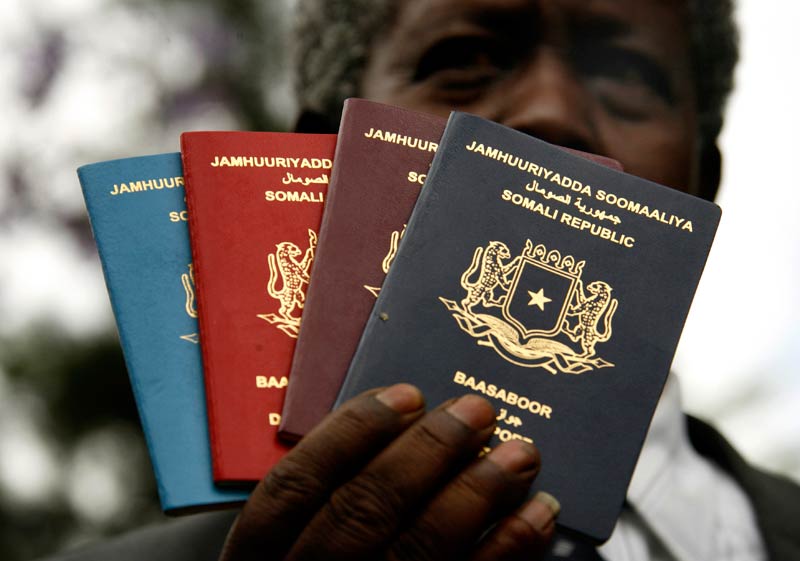When Africans began going to Europe, America and other foreign countries to further their tertiary education, many were sent in the hopes that they’d come back and use those skills to contribute to the upliftment of their communities. Whilst some returned, others remained abroad for one reason or another – some because it made practical sense to do so, and others simply because the pull of their new home yielded more than the places they had left had ever offered them. Now, more than ever, as may African countries face critical brain drains, those who form part of the latter are often criticised for this decision. Zimbabwean-born architect Nicole Moyo, who studied abroad in Canada, details her experiences as an adventure-hungry globetrotter and someone who is part of the African academic diaspora.
What if we never moved? And we all stayed in our own niches, remaining indigenous? I wonder how many terms we would go our whole lives never having heard: “inter”, “multi”, “dimensional” – these words, to name a few, rely on an “other” or “outer” relationship to give them a purpose. These simple words describe myself, and yourself in the borderless world we live in today.
I never really understood Africa until I left it. I say ‘Africa’ because as I crossed the borders towards the Western shores, my immigrant identity was greater in numbers. I, like countless young individuals, had left home and was on the pursuit of seeking my fortunes abroad. Well, my family has always been on the move – by the age of 19 I was fortunate enough to have visited 23 countries. I wanted more, I was curious to know what exactly was on the other side of the pond, what was this first-world business?
Now, I cannot speak for others, but to be honest I had no idea what I was getting myself into. Other than incredible, unpredictable and gratifying – ‘reverse cultural shock’ would be one way to describe my experience.
There are many advantages to being part of the academic diaspora. This of course all depends on how motivated and dedicated you are to your own personal development. I have continuously learnt the limits are boundless. Individuals you meet from around the world I describe to be the most valuable asset to the development of your perspective on life as a whole. With an international degree you open yourself up to more opportunities, which I believe is needed in a world of unpredictable economies. South Africa for example, like many other counties is being built on an international working class. “If things don’t really work out here I can always go back home” – this is the option my parents have awarded me, however every person that leaves home has the responsibility to reward themselves. Freedom is a utopic expression, the liberation to do whatever you want, whenever you want to may seem ideal until you see people around you using it as a weapon against themselves.
The disadvantages are that you really are on your own. The networks of community and support you have back home are something you always long for. You are an immigrant in an environment where you have to integrate yourself into not forgetting that you have to work far harder than the nationals for who the jobs were created. As an international, my university fees were very expensive. Architecture was a degree that I could have also obtained at home for a tenth of the price so why leave? And why do so many people never return and share their abilities and the knowledge that, if leveraged correctly, becomes a priceless commodity and significant to the development of their home countries? Well I cannot answer that because each case is different. As for myself, “When are you coming home?” is a question I hear far too often and the answer becomes further diluted as I wonder how I will re-engage myself, how will I make a great and meaningful impact? The truth is, really, I don’t know.
At times I feel confused and guilty, but for no good reason. I am a citizen of the world, a woman on a mission. There is no fault in my journey and if anything I get butterflies in my stomach that feel like love because I know I am doing exactly what I am supposed to be doing: Loving myself so that I can purposefully love others. Limitations are not always easy and present themselves as challenges of faith. As women, we are constantly being reminded of what we cannot do, how we should look but not how we should think and do best. It is our responsibility to absorb and then have a voice to teach others about the “inter”, “multi”, and “dimensional” world we all belong to. I am no longer just a woman, or just an African. Through my education, international experience and multiculturalism as an individual, I am continuously advancing my value to become a useful and purpose-driven globalised citizen.
* This post has been updated to correct the author field. It was first published on The Corporate Canvas, not Dynamic Africa.
The brainchild of Zimasa Qolohle and conceptualised by Karabo Ngoatle, The Corporate Canvas is a Careers and Finance online magazine for South African Millennial women.



